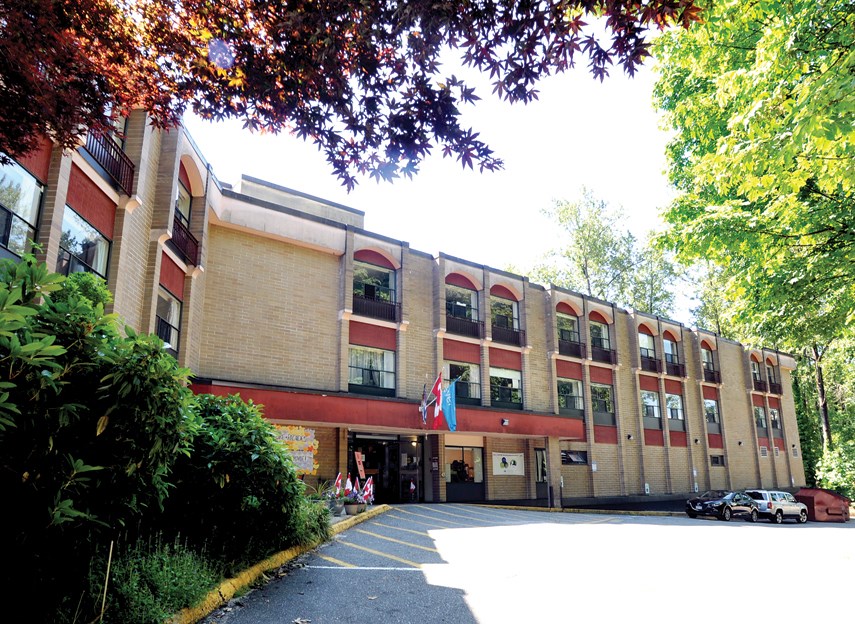As of Sunday, Dec. 6, there were a further 42 residents who are currently infected with COVID-19 as well as 14 who have already had the virus but are considered no longer infectious, according to a letter sent to families by executive director Connie Luck.
In addition, 15 staff with the virus are self-isolating at home, while 36 have recovered and have been cleared by health authorities to return to work.
The outbreak at the West Vancouver care home, which was declared Nov. 9 at the 205-bed care home on Clyde Avenue, is on a scale not seen on the North Shore since the virus tore through Lynn Valley Care Centre in March.
Suzanne Allan’s 91-year-old father Thomas “Phil” Fee was one of those who died at Capilano Care Centre, succumbing to the virus Dec. 2.
Allan said she had been allowed visits to her father this fall after unrelated health conditions caused her father’s condition to deteriorate and he was not expected to live long.
When the COVID-19 outbreak struck the care home, Allan said one of her biggest fears was “not wanting him to go through one of those horrible deaths alone.”
Allan said she and her brother were able to visit her dad, wearing PPE and following strict infection control protocols, the night before he died.
Allan said she was grateful for the care her dad received at the home, including in-room visits from social workers, up until his death from the virus.
“We still need to support all those workers in all the homes, however we can,” she said.
Special precautions currently in place at Capilano Care Centre include limiting the number of staff who can be in a break room, limiting staff to working on one floor of the care home, and requiring masks to be worn at all times except when eating. The care home is also using a rapid disinfection machine described as a “small robot on wheels” that uses ultraviolet light to sterilize high-use areas.
The Capilano outbreak is one of 57 outbreaks at long-term care homes in the province, most of those in the Lower Mainland. Over 1,000 seniors home residents and over 600 care home staff are currently infected with the virus.
Dr. Bonnie Henry, the province’s medical health officer, has repeatedly described the challenge of containing the virus once it gets into nursing homes. Most of the time, the workers who have brought the virus in have not had any symptoms of illness or have had symptoms so mild, they have not been recognized. Health authorities plan to do a pilot at a few care homes in the Lower Mainland soon using new rapid tests that can give results in just 15 minutes.
But Henry has continued to voice doubts about the accuracy of those tests in workers who are asymptomatic, as well as the capacity of the system to test up to 60,000 people who work in long-term care every day.
“That’s not feasible or practical with the test that we have,” she said. About 70 per cent of the people who have died of the virus in B.C. have been residents of long-term care homes.
“This is 70 per cent of the deaths occurring in a group of people that make up about one per cent of all British Columbians,” wrote Luck in her letter to families.
As of Monday, 527 people in B.C. have died of COVID-19. Statistics recently released from Vancouver Coastal Health showed COVID-19 cases on the North Shore have made up 14 per cent of the 8,485 infections in the Vancouver Coastal Health region but a disproportionate number of deaths – 29 per cent – among those who have contracted the virus within VCH. North Shore residents accounted for 17 per cent of the 527 hospitalizations (approximately 90 people) but fewer ICU admissions (approximately 14 people) and nine per cent of the 152 people admitted to intensive care. North Shore residents, however, accounted for 29 per cent of the 178 deaths from COVID in VCH – approximately 52 people.



